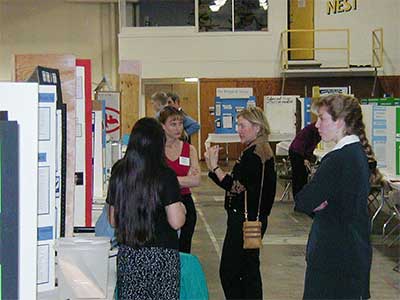Top 15 Tips for Student Scientists to Succeed at Science Expo
 This information is provided by Dr. Carl Castles and Dr. Michael Havens, MSU Billings.
This information is provided by Dr. Carl Castles and Dr. Michael Havens, MSU Billings.
Dr. Carl Castles is Assistant Professor of biology at and has served as a Science Expo finalist judge for over five years. Dr. Mike Havens is Assistant Professor and Department Chair of Psychology.
If you would like to contact Dr. Castles for more detailed explanation or study design, please call (406) 657-2014 or email him at ccastles@msubillings.edu.
- Don’t just repeat a project seen on the internet. That’s cooking, not science.
- Winning projects will be based on original ideas and will not just be testing products like hand sanitizers.
- Propose well designed studies that produce meaningful results.
- Limit the number of variables you will test. A few good experiments are better than too many poorly done ones. Keep your project focused.
- Show evidence of an understanding of sampling, this is a critical scientific methodology.
- Recognize the difference between experimental and non-experimental designs (the presence of a control group).
- Simple statistics are readily accessible to everyone over the internet. Lack of analysis is linked to the lack of sampling. You can’t analyze data that has not been systematically sampled.
- Don’t make conclusions that are not supported by the data.
- Don’t just reference Wikipedia or other websites in the bibliography. Try to find real scientific articles on which to base your project.
- Don't put too much information on your poster. Information should be succinct and text should be in a font that is easily read from a few feet away. Judges do not want to spend 15 minutes just trying to read the poster.
- Don't put error bars on graphs - no statistics in general on graphs.
- Too little information on the poster is as bad as too much. A good graph can say more than a long paragraph, but still requires a legend giving a brief explanation.
- Always have someone else check your poster for spelling and grammar. Good English is as important in the Sciences as it is in the Arts.
- Practice your presentation prior to the competition where you will have to speak to three judges.
- Produce a professional looking error-free post. You can Google 'Scientific Posters' for ideas and templates.
